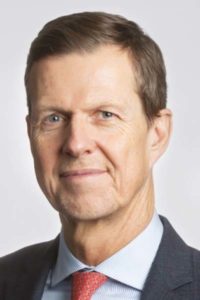This article is sponsored by Sanne.
What are the latest regulatory developments that private fund managers should be aware of?

Pierre Weimerskirch: There is a lot going on, but a few developments in particular impact private equity. The most obvious is environmental, social and governance concerns, which are both a regulatory and a broader concern for fund managers. In Europe, the Sustainable Finance Disclosure Regulation (SFDR) now requires managers to qualify their funds in one of three categories, as either Article 6, 8 or 9, depending on their ESG strategy. Over the last 12 months we have seen more private equity managers launching impact funds under Article 9, and that is driven not just by SFDR but also by the demands of large institutional investors.
The Level 2 disclosure requirements under SFDR will now come into effect in January 2023 and those require firms to report on 18 mandatory principle adverse impact statements in relation to their environmental impacts. Some managers are going to struggle with that level of granularity and accessing the level of underlying data required for that reporting, but at the same time their LPs are also demanding enhanced reporting on all these metrics. So that is going to be a big theme for managers to address this year.
Another significant regulatory issue is the European Commission’s proposed Anti-Tax Avoidance Directive III, which is aimed at preventing the use of shell companies for tax evasion in the EU. A lot of private equity funds are organized with cross-border structures through which they hold their investments that could potentially be captured by those proposals, so they could have serious implications, depending on how the directive is developed.
Are there developments in the key private equity jurisdictions that managers should have on their radar?
PW: In all our jurisdictions, finding and retaining talent in the private assets industry is currently a significant challenge. The industry has been booming over the last few years and that has led to a real scarcity of qualified professionals. That is as true in London as it is in our offices in Luxembourg and in Dublin and it creates real issues for those private equity centers, not only in relation to recruitment but also when it comes to retention of talented individuals.
Those challenges are compounded in areas such as ESG and impact, where fund managers are stepping up their efforts and are struggling to find people with the right qualifications and experience in what is a relatively new subject area for private funds.
Another specific challenge is the increased focus on anti-money laundering and know-your-client, which is now leading to growing scrutiny of private equity transactions. In the past, there was always a lot of focus on those issues in relation to limited partners, but now in Luxembourg we are witnessing a push from the regulator to put more scrutiny on the deals and identifying the beneficial owners on the transactions, which is a development we all need to get used to. Other jurisdictions will inevitably follow the same route.
What trends are you observing in the current technologies being used among private funds?
PW: The key change here is around the demand for technology to offer portfolio analytics to limited partners. Institutional investors have a growing requirement for reporting on ESG and other non-financial metrics, including diversity and inclusion. That is driving a demand for a lot more data analytics tools that are capable of providing those reports at the touch of a button for LPs. Some of the larger managers are developing those technologies themselves, but smaller managers are turning to service providers, and it is something the whole industry is working on.
Another question is how to best offer that reporting to clients, whether it is using platforms or online solutions. Clients want the flexibility to access those reports on different devices, not just at their desk in the office, so that is a challenge for providers to address.
We see a growing need for service providers to integrate their reporting solutions with their core fund administration platforms. For the mid-market and smaller managers that are turning to service providers to develop these reporting solutions, that is one issue, but for the larger managers that are developing their own platforms there is a different challenge in integrating systems so that they can work seamlessly together.
Finally, looking forward, we expect a greater demand for firms like Sanne to service private funds in relation to crypto assets. For us, that means we have to be able to manage those assets and meet the regulator’s requirements in that emerging area. We are in the process of looking at what role crypto assets will play in the asset class going forward and how we will need to adapt our underlying processes to manage and administer those for our clients.
What areas of the business are ripe for technology transformation? Are there any barriers to improving efficiency?

David Fowler: The future is going to be about getting with a portal. GPs are looking to demonstrate their firm’s value-add to investors from both a performance and investor experience perspective. With the right solutions and service providers, funds can create an excellent LP experience that takes every opportunity to anticipate LP needs and add value.
As in-person meetings are few and far between and the need for intentional, virtual communication has increased, managers will continue to pay close attention to client experiences. Funds that offer effective communication, secure technology, and instant access to their investment details will succeed.
Where do you see funds turning to third parties for technology expertise? How can those providers support tech solutions and innovations?
DF: Meeting and exceeding expectations requires a high level of attention to detail, operational efficiency, industry information and market knowledge. Specialist expertise is needed to manage the day-to-day operations of the fund, including the LP experience.
As a fund manager grows their assets under management, the right fund administrator can be a long-term partner that helps scale their operations by providing a sophisticated service solution for evolving investor needs.
As solutions and technology become a significant differentiator, fund managers should look for a fund administration partner that has a breadth of services, world-class technology and reporting, and a team with hedge fund expertise. Doing this in-house is expensive from a technology perspective and getting the skilled talent is a challenge. Outsourcing improves speed to market, accuracy and efficiency all around.


 If you do not receive this within five minutes, please try to sign in again. If the problem persists, please email:
If you do not receive this within five minutes, please try to sign in again. If the problem persists, please email: